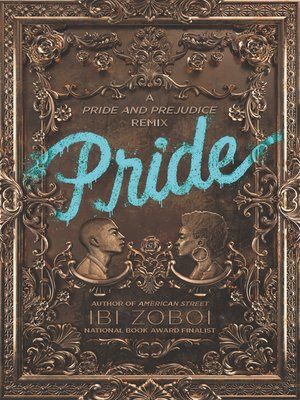Summer Reading Book #4 -- Pride by Ibi Zoboi
Pride is a retelling of Pride and Prejudice by Jane Austen. Instead of early 19th century England, this version is set in modern-day Brooklyn; the neighborhood of Bushwick, to be exact. The protagonist is 17-year-old Zuri Benitez. She has four sisters and lives in a cramped apartment with her parents, in a building owned by Madrina, a self-proclaimed Santería priestess from San Juan who often advises on issues of love, fortune and future from her smoky basement.
Zuri is fiercely proud of her Dominican and Haitian roots. She is proud of her neighborhood. She has her eyes on going to Howard University.
She is also a poet, and the narrative is punctuation with her poems about Bushwick, her sisters, and life in the “hood.”
She is also feisty and quick to judge, often pushing others away before knowing them. Her tough exterior, though, hides a fear of change and the unknown. This makes her very suspicious of the “bougie” family that has bought and renovated the “mini-mansion” across the street.
Although there is something about Darius Darcy, the boy her age who now lives in that house and who goes to a private high school in Manhattan, she can’t help but to dislike him from the start.
That, of course, will change.
This is a book about love, of course. But, like the book from which it draws inspiration, Pride is also about class and culture. As a teacher of sociology, I was drawn to the subtext. Above anything else, this is a book about gentrification. And if I were still teaching sociology, I would use it in class.
The opening paragraph sets the stage for this subtext:
It’s a truth universally acknowledged that when rich people move into the hood, where it’s a little bit broken and a little bit forgotten, the first thing they wanna do is clean it up. But it’s not just the junky stuff they’ll get rid of. People can be thrown away too, like last night’s trash left out on the sidewalks or pushed to the edge of wherever all broken things go. What these rich people don’t always know is that broken and forgotten neighborhoods were first built out of love.
It took me a bit to warm up to Zuri, though, and I found her relationship with Darius to be the least interesting part of the book. The strength of the book rests in Zuri’s attachment to her community and family. The conversations she has are authentic, as are her relationships with her sisters. A discussion she has with her father near the end is particularly touching.
And when she takes a trip to D.C. to tour Howard University on her own and timidly takes the stage at an open mic night to read her poetry in a bookstore near campus, her independence and hope for her future explodes from the page in a truly believable fashion. That may have been my favorite scene in the entire book and, from that point on, Zuri had me rooting for her all the way.
If you are not traveling anywhere this summer, why not take a trip to Brooklyn? Pride is a quick read and is available in the ARC and on the SORA app as well.





Comments
Post a Comment